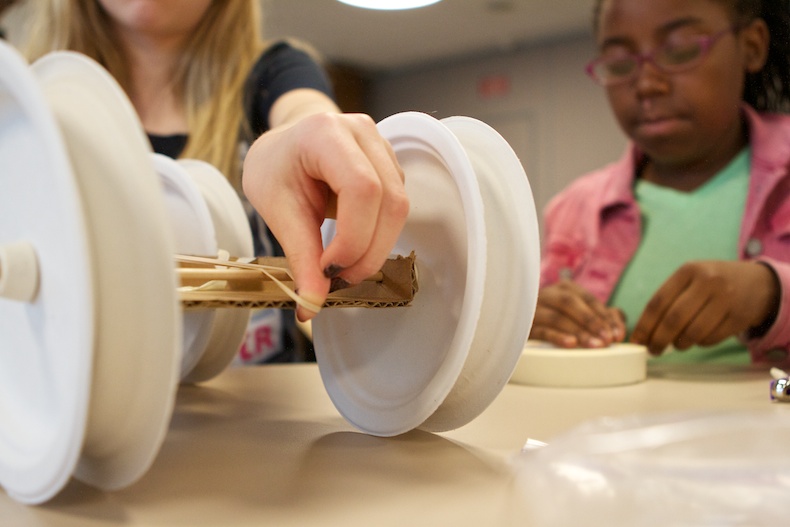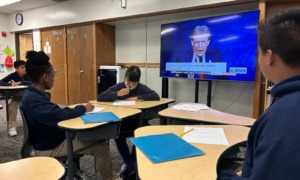The federal Office of Child Care is leaning in toward out-of-school time as it creates a new National Center on Afterschool and Summer Enrichment.
The center will be funded by a $10 million, five-year grant from the Office of Child Care. Its goal is to expand access to high-quality after-school and summer learning
programs for low-income kids.
“It’s part of a comprehensive technical assistance system for the Office of Child Care,” said Tony Streit, who will lead the center. “This is really a new strategy for them.”

Tony Streit
Focused initially on meeting the child care needs of working parents, the office is now responding to the growing need for after-school care — and the research on its importance to low-income children.
Streit is senior project director at Education Development Center (EDC), the Waltham, Massachusetts, nonprofit that will set up the center. EDC designs and manages 250 projects in education, health and international development in 22 countries.
[Related: STEM Education Bill With OST Focus Signed Into Law]
Among Streit’s projects is the YouthLearn initiative, which helps youth development professionals use media and other technology to create active learning environments for kids. He specializes in media education, technology and informal science, technology, engineering and math learning. Streit’s team at EDC has assisted out-of-school time organizations with program materials, professional development and research and evaluation.
Streit said the Office of Child Care recognized there’s a strong intersection between the child care and after-school fields. In fact, the office serves approximately 1.5 million low-income children, more than one-third of whom are school age. It spends $19 billion annually on care for school-age children.
The focus of the Office of Child Care has been on meeting the critical child care needs of working parents.
However, many after-school programs for low-income kids are funded through the federal program, 21st Century Community Learning Centers, which is focused on making the after-school hours a meaningful learning time.
Providers of after-school programs that get funding from both sources can be pulled in two directions, Streit said.
The National Center for Afterschool and Summer Enrichment will help align the two entities in the areas of quality, health and safety, he said. The center, now in a “formative” stage, will address effective use of funds, professional development and continuous quality improvement through the use of data.
It will provide assistance through the state agencies that administer the Child Care and Development Block Grants, and also will collaborate with state after-school networks.
The center “provides some exciting promise for field-building,” said Ellen Gannett, director of the National Institute on Out-of-School Time (NIOST). Bringing the child care and out-of-school time sectors together is a “very promising approach,” she said.
EDC will partner with NIOST, the National Summer Learning Association and WRMA, a small business that provides expertise on managing subsidies.
“The role that NIOST will play … will be on quality improvement systems as well as workforce development and professional development for practitioners in the field,” Gannett said.
“We’ll offer training and technical assistance, and bring together groups within the states for support and collaboration,” she said.
NIOST has decades of experience in those areas, she said.
The Summer Learning Association brings expertise in developing and implementing effective summer learning experiences, Streit said.
More related articles:
After the school day in Finland, play and more play
Kids Experiment With STEM For National Youth Science Day
Career Pathways: Creating a Pipeline to Employment for Young Adults



























